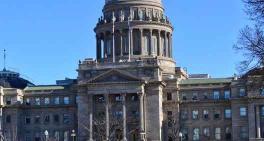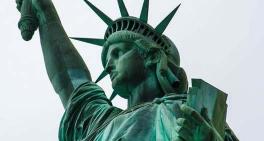Detroit-area couple in court over control of frozen embryos
Legal Compliance News
A Detroit-area woman seeking custody of as many as 10 frozen embryos is asking a judge to appoint a guardian over them while she clashes with her former partner for control.
Gloria Karungi and Ronaldlee Ejalu have a daughter who has sickle cell disease. Karungi believes if she can bear another child with one of the embryos, bone marrow cells from that sibling could potentially cure the girl's blood illness.
But Ejalu must give his consent, according to a contract with an in vitro fertilization clinic, and he's not interested. Karungi and Ejalu never married and are no longer together.
Oakland County Judge Lisa Langton last year said she didn't have the authority to wade into the embryo dispute; she was simply determining financial support and parenting time for the couple's daughter. But the Michigan appeals court sent the case back to Langton for more work, including an evidentiary hearing if necessary.
Karungi "wants to cure her daughter and is seeking the embryos to that end. ... Without the embryos coming to term, that child has no ability to be cured," the woman's attorney, Dan Marsh, said in a court filing.
Ejalu's lawyer, Dan Weberman, said he'll argue again that a Family Division judge has no role in what's basically a contract quarrel. He also said it's misleading for Karungi to claim that cells from a sibling are the only cure for the 7-year-old girl.
"They want to paint a picture like she's on her death bed," Weberman told The Associated Press. "She's in school. She's a happy girl. She gets treatment once a month."
Ejalu no longer believes that using frozen embryos is a good idea.
"He doesn't feel ethically that a life should be created for human tissue harvesting. That's somewhat mind-boggling," Weberman said.
Under orders from the appeals court, Langton on June 20 again will hear arguments on whether she has jurisdiction over contested property held by unmarried parties. But in the meantime, the judge has scheduled a hearing for Wednesday on Karungi's request to have a lawyer appointed as guardian over the embryos.
Related listings
-
State appeals court reinstates California's right-to-die law
Legal Compliance News 06/16/2018A state appeals court has reinstated — at least for now — California's law allowing terminally ill people to end their lives.The Fourth District Court of Appeals in Riverside issued an immediate stay Friday putting the End of Life Option ...
-
Gamers in court for first time after Kansas 'swatting' death
Legal Compliance News 06/13/2018Two online gamers whose alleged dispute over a $1.50 Call of Duty WWII video game bet ultimately led police to fatally shoot a Kansas man not involved in the argument will make their first appearances in court Wednesday in a case of "swatting" that h...
-
UK Supreme Court criticizes Northern Ireland abortion laws
Legal Compliance News 06/08/2018Britain's Supreme Court on Thursday criticized Northern Ireland's strict anti-abortion laws but dismissed a legal challenge.A majority of the court decided that the Northern Ireland Human Rights Commission, which initiated the case, did not have the ...

Processing Change for Certain Form I-730 Petitions
USCIS changed the processing location for certain Form I-730, Refugee/Asylee Relative Petition, filings. Previously the Service Center Operations Directorate processed these filings. Now, the International Adjudications Support Branch (IASB) in the Refugee, Asylum, and International Operations Directorate will process the petitions filed by individuals who were admitted to the United States as refugees. Petitioners and/or accredited representatives who file refugee-based Form I-730 petitions will receive further instructions when IASB receives their filings. Form I-730 petitions filed by persons granted asylum will not be affected by this change. The mailing instructions for Form I-730 remain the same. Petitioners should continue to follow the Where to File directions on the Form I-730 page. This policy update is consistent with the Department of Labor’s (DOL’s) Standard Occupational Classification system. DOL defines economists as people who conduct research, prepare reports, or formulate plans to address economic problems related to the production and distribution of goods and services or monetary and fiscal policy. Economists may collect and process economic and statistical data using sampling techniques and econometric methods.




